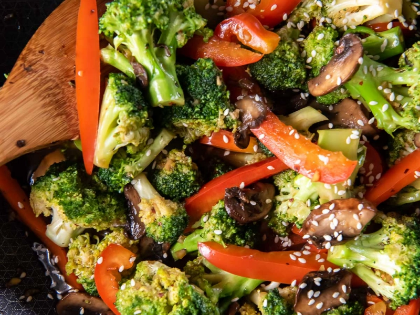Pineapple for Natural Allergy Relief: Exploring Its Potential
Apart from being a great tropical fruit, pineapple could be a friend in the battle against allergies. Packed with vitamins, minerals, and special enzymes, pineapple might offer those with allergic responses natural relief. This page explores the characteristics of pineapple that help to reduce allergies, how you could include it into your diet, and the scientific studies confirming its advantages. Knowing how pineapple could reduce allergy symptoms will enable you to make wise decisions about your health.
pine pineapple's nutritional profile

Bromelain's Function in Relieving Allergies
 One of the main ingredients in pineapple, bromelain has drawn interest for its possible allergy relief properties. Studies point to bromelain's potential ability to ease nasal congestion and oedema, therefore facilitating breathing for those with allergies. In allergy season, when pollen and other allergens abound, this can be very helpful.
Research has indicated that bromelain can stop several inflammatory substances—including histamines—from being released in the body. Chemicals called histamines are produced in allergic reactions that bring in runny nose, sneezing, and itching. Bromelain may assist to lessen these unpleasant effects by maybe lowering histamine release. Incorporating pineapple into your diet could offer a natural approach to fight allergies free from the adverse effects sometimes linked with over-the-counter drugs.
One of the main ingredients in pineapple, bromelain has drawn interest for its possible allergy relief properties. Studies point to bromelain's potential ability to ease nasal congestion and oedema, therefore facilitating breathing for those with allergies. In allergy season, when pollen and other allergens abound, this can be very helpful.
Research has indicated that bromelain can stop several inflammatory substances—including histamines—from being released in the body. Chemicals called histamines are produced in allergic reactions that bring in runny nose, sneezing, and itching. Bromelain may assist to lessen these unpleasant effects by maybe lowering histamine release. Incorporating pineapple into your diet could offer a natural approach to fight allergies free from the adverse effects sometimes linked with over-the-counter drugs.
Including Pineapple into Your Diet
 Including pineapple into your diet is easy and pleasurable. Fresh pineapple is a cool delight either on its own as a snack or mixed into fruit salads. It can also be combined into smoothies, which offer a great approach to increase your vitamin consumption. Pineapple adds a sweet and sour taste and can be included into savoury meals including stir-fries, grilled meats, or even tacos for individuals who enjoy cooking.
Fresh pineapple is better for optimum advantages than canned forms, which could include less nutrients and additional sugars. Frozen pineapple is a fantastic substitute if fresh pineapple is not available since it keeps most of its nutritional worth. While savouring pineapple's distinctive taste, experimenting with various recipes and approaches of enjoyment will help you reap its allergy-relieving effects.
Including pineapple into your diet is easy and pleasurable. Fresh pineapple is a cool delight either on its own as a snack or mixed into fruit salads. It can also be combined into smoothies, which offer a great approach to increase your vitamin consumption. Pineapple adds a sweet and sour taste and can be included into savoury meals including stir-fries, grilled meats, or even tacos for individuals who enjoy cooking.
Fresh pineapple is better for optimum advantages than canned forms, which could include less nutrients and additional sugars. Frozen pineapple is a fantastic substitute if fresh pineapple is not available since it keeps most of its nutritional worth. While savouring pineapple's distinctive taste, experimenting with various recipes and approaches of enjoyment will help you reap its allergy-relieving effects.
Possible Negative Effects and Thoughtfulness
 Although most people find pineapple to be generally harmless, one should be mindful of any adverse effects. Pineapple alone may cause allergic responses in certain people that result in itching or swelling. Furthermore, bromelain may aggravate some drugs, including blood thinners, and hence raise bleeding risk. Therefore, before greatly increasing your pineapple intake, especially if you are on medication or have current medical concerns, it is imperative to see a healthcare practitioner.
Including any new cuisine into your diet calls for moderation. Although pineapple has many health advantages, too much of it could cause digestive problems because of its great acidity. By listening to your body and modifying your consumption, you will be able to experience the advantages of pineapple free from side effects.
Although most people find pineapple to be generally harmless, one should be mindful of any adverse effects. Pineapple alone may cause allergic responses in certain people that result in itching or swelling. Furthermore, bromelain may aggravate some drugs, including blood thinners, and hence raise bleeding risk. Therefore, before greatly increasing your pineapple intake, especially if you are on medication or have current medical concerns, it is imperative to see a healthcare practitioner.
Including any new cuisine into your diet calls for moderation. Although pineapple has many health advantages, too much of it could cause digestive problems because of its great acidity. By listening to your body and modifying your consumption, you will be able to experience the advantages of pineapple free from side effects.
Studies Advocating Pineapple's Allergy Relief
Researchers have started looking at the possible advantages of pineapple and bromelain in connection to allergy treatment. Studies suggest that bromelain might have anti-inflammatory and immunomodulating effects, so helping to lessen allergic reactions. According to several research, bromelain users report better respiratory function and less nasal congestion. Though additional study is required to properly grasp the degree of pineapple's advantages for allergies, current studies offer encouraging results. Pineapple might become a useful supplement to allergy control plans as natural therapies attract more attention. Pineapple is a tasty and nutrient-dense fruit that people could discover helps with allergy symptoms by including into a balanced diet.
Living Advice for Allergy Management
Apart from including pineapple into your diet, numerous lifestyle modifications can help control allergies more successfully. Maintaining general respiratory health and helping to thin mucus depend on staying hydrated. Regular exercise will also strengthen your immune system and increase lung capacity, thereby helping you to control allergies. Reducing dust and pollen exposure helps to create a clean living environment, thereby helping to further ease allergy symptoms. Making a big difference is regular washing of linen, running air purifiers, and closing windows during high pollen seasons. Combining dietary changes—like adding pineapple—with good lifestyle choices will help you to naturally manage allergies.








